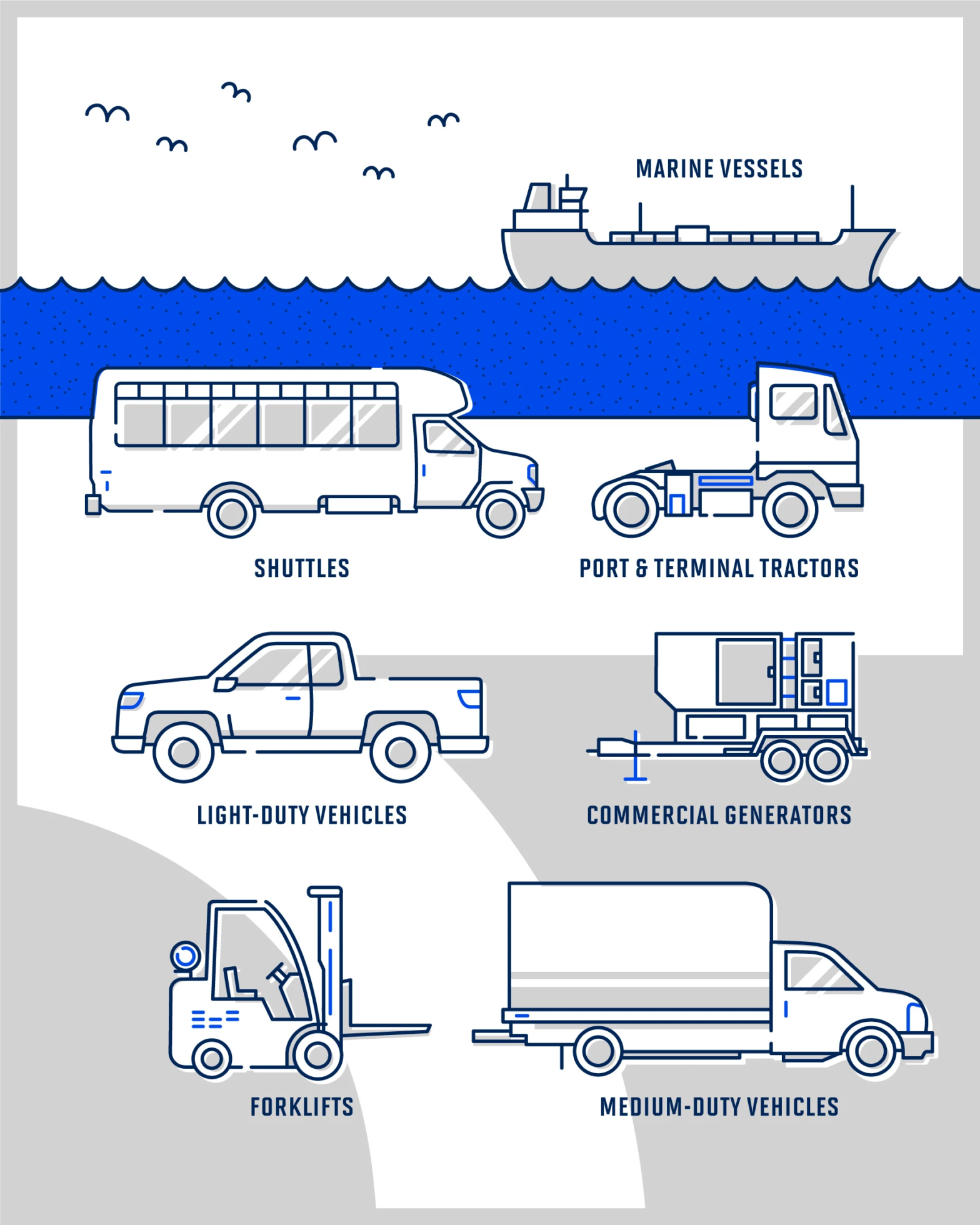Ports Power Up with Propane: A Breath of Fresh Air for Efficiency and Sustainability

Ports are the lifeblood of international trade, but their constant activity can take a toll on air quality. Diesel-powered equipment, often used for heavy lifting and transport, contributes greatly to air pollution such as smog. However, a cleaner and more efficient alternative is gaining momentum: propane.
Propane offers a compelling solution for port material handling, encompassing vehicles such as forklifts, yard tractors, and even reach stackers. Here’s a deeper dive into why ports are making the switch to this clean fuel source.
Cleaner Burning, Healthier Environment
Compared to diesel, propane boasts significantly lower emissions. This translates to less smog, reduced particulate matter, and improved air quality for port communities and surrounding areas. This is a crucial benefit for port workers and residents alike.
Uninterrupted Power, Unmatched Performance
Unlike electric equipment that experiences power loss as batteries deplete, propane-powered vehicles deliver consistent and reliable performance throughout a shift. No need to worry about stopping for lengthy recharges or dealing with power outages – propane ensures continuous operation, keeping port activities running smoothly.
Cost-Effective
Propane often proves to be a more budget-friendly fuel option compared to diesel. Furthermore, propane infrastructure typically requires less investment for installation and maintenance, leading to long-term cost savings for ports.
Proven Technology, Seamless Transition
Propane isn’t a new kid on the block. It has a long history of powering material handling equipment, particularly the forklifts commonly used in port warehouses. This readily available technology allows for a smooth transition to propane-powered vehicles across other port operations.
Scalability and Flexibility
The beauty of propane lies in its adaptability. From smaller forklifts to heavy-duty yard tractors, propane technology can be applied to a variety of port vehicles, catering to diverse needs.
By embracing propane, ports pave the way for a healthier and more sustainable future. Cleaner air, efficient operations, and potential cost savings make propane an attractive solution for the demanding world of port material handling. This shift not only benefits the environment and surrounding communities, but also ensures the continued smooth transfer of goods across the globe.
This article is based on information from the Propane Education & Research Council (PERC) website.













